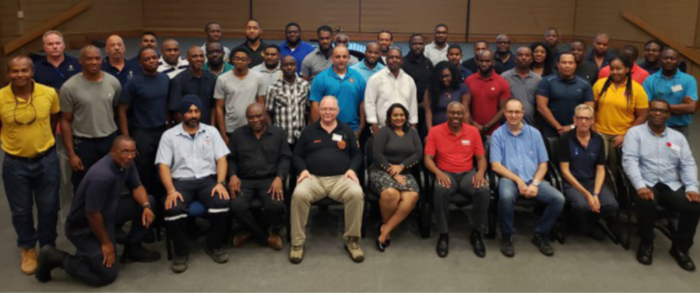Conducting a vessel inspection is very important task. In order to keep a high level of safety in the Caribbean, a Regional Caribbean Ship Inspector Training course (CASIT) took place from 29 October to 16 November, in Trinidad and Tobago.
Inspections by flag and port States are also vital to ensure high ship standards and reduce accidents and pollution to the maritime environment.
[smlsubform prepend=”GET THE SAFETY4SEA IN YOUR INBOX!” showname=false emailtxt=”” emailholder=”Enter your email address” showsubmit=true submittxt=”Submit” jsthanks=false thankyou=”Thank you for subscribing to our mailing list”]
The objective of the course is to prepare ship surveyors to be able to work in a Caribbean maritime administration. Trainees will be able to perform flag State inspection (FSI) on all ships under 24 meters in length and carry out annual and renewal surveys on vessels up to 500 GT.
Participants also received training in order to conduct PSC inspections, including inspection of documents on all ships.
The course covered a range of theoretical topics too, such as international treaties compliance, port and flag State regimes, Recognized Organizations (ROs), conventions on maritime safety and pollution prevention and the regional safety codes.
It also included technical components ranging from ship stability and loadlines to dangerous cargoes, machinery installations and hull constructions.
Moreover, participants were trained on issues regarding working and living conditions on board ships, according with the International Labour Organization (ILO) Maritime Labour Convention 2006.
The course also gave participants a chance to conduct actual ship inspections and get a real feel for the job.






























































